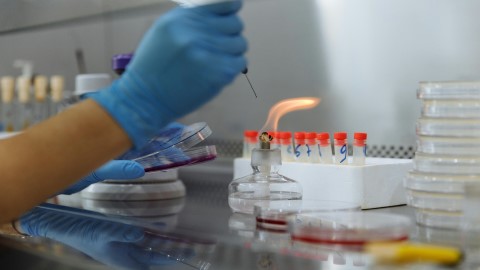The UAB launches a biosafety course for secondary school teachers
The UAB launches a hybrid course (on-site and online) on biosafety, aimed at all teachers of secondary education and vocational training courses, particularly those linked to the area of biology. It will be held over three days: 13, 20 and 27 November from 6 p.m. to 8 p.m.

This training aims to provide teachers with the necessary tools to ensure safety when working with microorganisms in the educational environment. The need to train teachers in this area has become particularly evident in the wake of the COVID-19 pandemic, which highlighted the importance of biosafety measures in different professional settings.
Durant aquestes jornades, els assistents podran conèixer els conceptes bàsics de la bioseguretat, així com les normatives i bones pràctiques per a treballar amb microorganismes en el laboratori i en els treballs de recerca amb alumnat de secundària. Els participants que assisteixin al 80% de les hores del curs obtindran un certificat de Formació Permanent del Professorat, reconegut pel Departament d'Educació de la Generalitat de Catalunya.
During the course, participants will learn the basic concepts of biosafety, as well as the regulations and good practices for working with microorganisms in the laboratory and in research work with secondary school students. Participants who attend 80% of the course hours will obtain a certificate of Continuing Teacher Training, recognised by the Ministry for Education of the Government of Catalonia.
The course is divided into four thematic blocks that address fundamental aspects of biosafety. Block 1 will focus on the identification and characterisation of pathogenic microorganisms, as well as understanding the risks associated with their work in educational environments. Participants will learn to identify which microorganisms can be used in teaching practices and how to handle samples with unknown composition. Block 2 will address the requirements of the different levels of biological containment for activities in teaching laboratories. It will also discuss the biological risk groups and how activities with microorganisms have to be planned to meet the required safety levels. Finally, Blocks 3 and 4 will discuss the strategies to manage the waste generated in practices with microorganisms and the protocols to follow in case of incidents. There will also be an analysis of biosafety in upper secondary school research work.
The UAB, with Sustainable Development Goals
Quality education
Partnerships for the goals